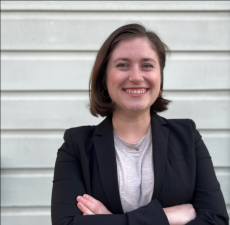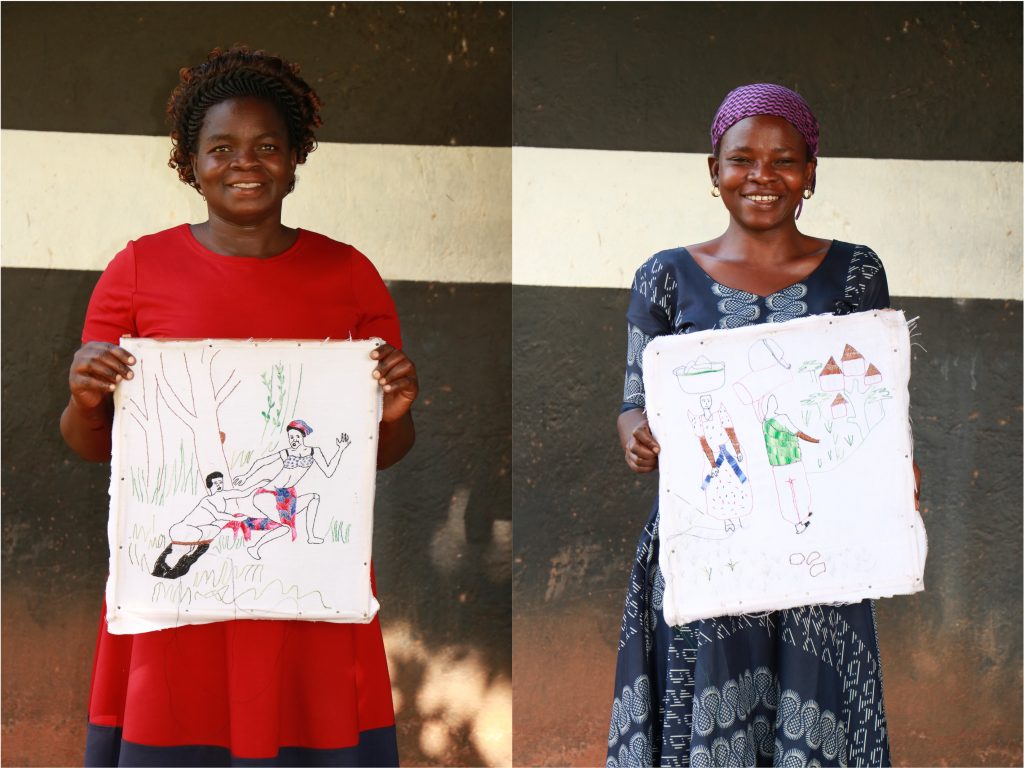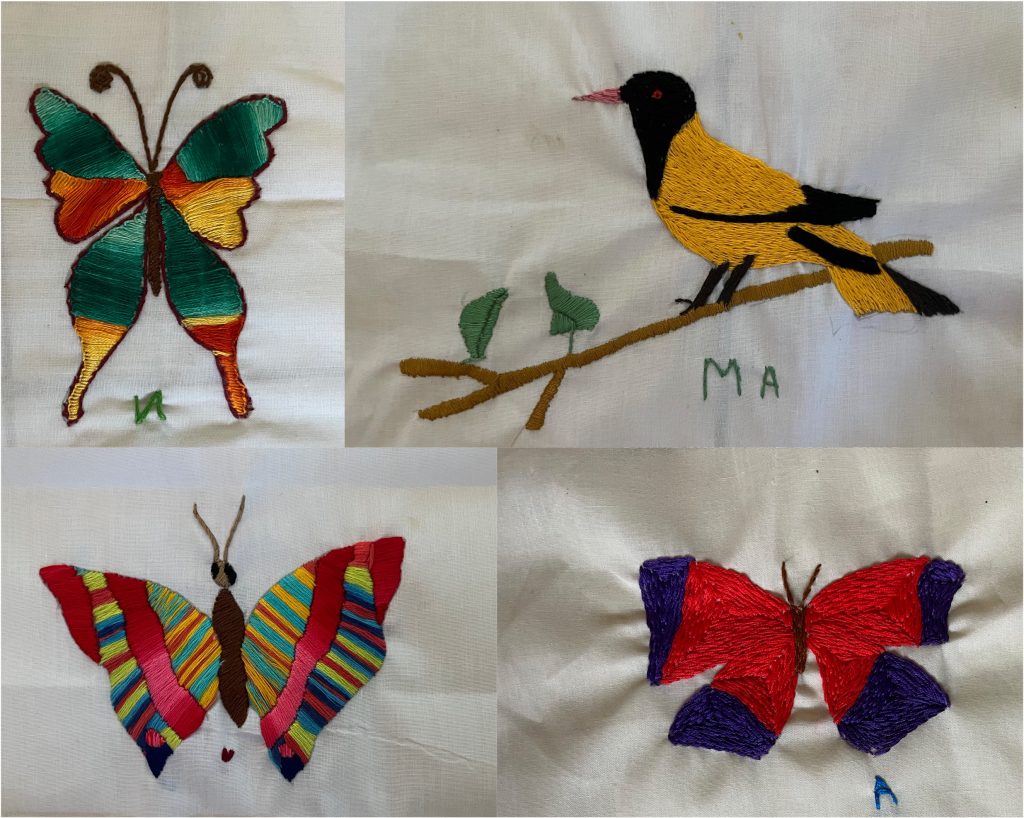Trigger Warning: This blog discusses serious topics, including war, sexual violence, and captivity. If those topics are especially disturbing to you, please skip reading this blog!
Additionally, this blog highlights a new tailoring start-up that Women in Action for Women is beginning for its members. Please consider donating to the project on GlobalGiving to help them reach their goal.
Women in Action for Women (WAW) is an organization based in Northern Uganda that supports women survivors of the Lord’s Resistance Army (LRA) conflict. Their intent is to empower women with the skills to uplift themselves, their families, and their communities through business skills and vocational training. The LRA was a rebel movement in Uganda from 1987 to 2006, which abducted approximately 50,000 children (although numbers vary significantly based on the source). Today, there are over 3,000 female survivors of the LRA conflict in Northern Uganda – 95% of which are single mothers. Returning to life after the abductions has not been easy. Many survivors did not finish secondary school and faced social exclusion once escaping the LRA, left with few ways to support themselves.
WAW was founded by Victoria Nyanyjura, a survivor herself, who has gone on to attend university in Kampala and Notre Dame and work for the United Nations. She always has a twinkle in her eye when she talks and is clearly very passionate about the work she does. WAW is also supported by Florence Nakito, a current intern who will be graduating from Makerere University in Kampala in the spring. She and I have become fast friends, as we both arrived in Gulu around the same time without knowing anyone!
Advocacy Project has a history of partnering with WAW on various embroidery and quilting projects. Bobbi of the Advocacy Project Board visited Uganda a few years ago to teach the women to embroider. Since then, the women have created multiple quilts that visualize their personal stories from the war and from COVID-19.
The current project is a nature-themed sister artists effort. The members of WAW embroider butterflies and birds and are paid for their products. These embroideries are shared with “sister artists” in North America who create quilts with the embroidery blocks. The quilts are put up for auction and all proceeds are shared back with WAW.
The first time I met with WAW, we enjoyed a traditional Ugandan meal together (beans, meat, rice, and posho). I gave them the colorful threads I had brought with me from the States and collected some of the embroideries they had created. I will collect even more embroideries before I leave and bring them back to the U.S. to be distributed to the sister artists. Each woman uses a unique style to the patterns and colors in their embroideries. They also add a signature (you can see the letters or symbols in the pictures below) to indicate which blocks are theirs.
I have been lucky to meet with Victoria, Florence, and the members of WAW a few times since arriving in Gulu and have listened to some of their stories from captivity (or “going abroad” as they call it, because they were all taken to South Sudan). These women endured starvation, rape, sexual abuse, and forced marriages and childbirth, often before the age of 15. Many of them have visible scars on their heads, arms, and chest from their time in captivity. One woman shared how they would be forced to follow a commander to the next town that was getting ransacked to make food for the soldiers and new recruits, often without food, water, or any instruction for how long they would be walking. They have also talked some about the challenges of repatriating and starting anew in their communities that look very different from when they left. You can read more about Victoria and the WAW members’ stories here.
Unfortunately, their stories are not unique, as I’ve heard anecdotes of the war from countless others in Uganda. Multiple people have shared that when growing up in Gulu, they would sleep in a different part of town at night that was safer, and then return to their homes in the morning. One person talked about how all four sons from their neighbor’s family were kidnapped, and years later only three returned. I’ve learned from GDPU that the Acholi sub-region has more people with disabilities than other areas in Uganda because of the war. These disabilities may have resulted directly from LRA brutalities, like forced amputations and PTSD, or indirectly, like mental disabilities caused by starvation and malnutrition and the generational impacts of trauma. While listening to these stories aches my heart, it is also a huge honor for people to feel comfortable sharing these personal and family histories with me.
Organizations like WAW are driving recovery and support for survivors by not only providing them with tangible skills, but also by creating spaces where survivors can safely build community with others who are recovering in tandem. WAW is currently in the process of designing and implementing tailoring training program. This program would enable the women to expand their existing artisan skills into clothing repair and production and help them initiate a business to receive a direct source of income. Please consider donating to their start-up to support this incredible organization.
Posted By Julia Davatzes
Posted Jul 23rd, 2024






2 Comments
Iain Guest
July 29, 2024
This is a very moving account of the lingering impact of war and terror on women, their amazing ability to survive and the way that they derive support and encouragement from each other’s company. Your blog also shows how embroidery and story-telling has contributed to strengthening their group. Of course, what they most need is an income and by helping them to launch a successful appeal on GlobalGiving you’ve laid the foundation for a tailoring business that will hopefully bring them a sustained income. Well done, Julia!
Mary Ellen Cain
July 29, 2024
What an uplifting blog, Julia! The survivor stories are very heartbreaking, but still so encouraging that people can endure so much and yet come through adversity stronger than ever. The women’s embroidery work is BEAUTIFUL and deserving of much attention and praise. I think it is great that WAW is about to begin the tailoring training program that will help the women broaden their skills to improve their income potential.